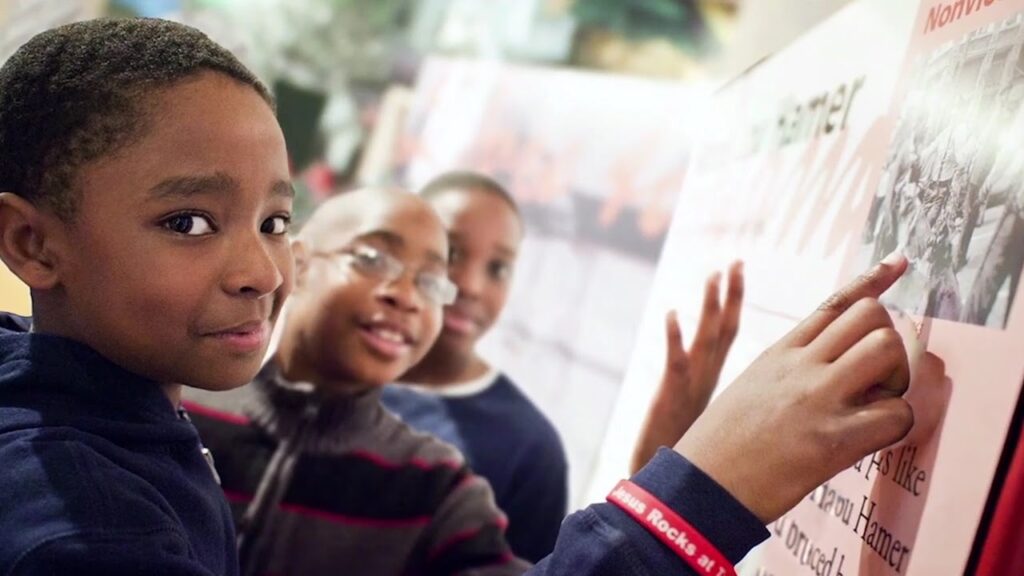Education for sustainable development is a vital aspect of our global efforts towards a sustainable future. It encompasses a wide range of knowledge, skills, values, and attitudes that are necessary to address the social, economic, and environmental challenges facing our world today. As we continue to face pressing issues such as climate change, resource depletion, and social inequality, it becomes increasingly important to equip individuals with the tools and knowledge needed to create a more sustainable world.
In this article, we will explore the concept of education for sustainable development, its importance, and how it can be effectively implemented in different settings. We will also discuss its role in shaping our future and provide practical tips on how to incorporate sustainable development principles into our daily lives. Let us embark on this journey towards building a better world together.
The Importance of Education for Sustainable Development
Sustainable development aims to meet the needs of the present without compromising the ability of future generations to meet their own needs. Education plays a crucial role in achieving this goal by empowering individuals to make informed decisions and take responsible actions towards a sustainable future.
Creating Awareness and Understanding
Education for sustainable development provides individuals with the knowledge and understanding of the interdependence between human society, the environment, and the economy. It helps them recognize the consequences of their actions and understand how their choices impact the well-being of people and the planet. By raising awareness and promoting critical thinking, education can help individuals make more sustainable choices in their daily lives and advocate for positive change in their communities.
Developing Sustainable Skills and Values
Sustainable development requires a shift in mindset and behavior towards more sustainable practices. Through education, individuals can develop the necessary skills, values, and attitudes to live sustainably and contribute to the development of a sustainable society. These could include skills like problem-solving, critical thinking, and collaboration, as well as values such as empathy, responsibility, and respect for diversity. By nurturing these skills and values, education can help individuals become active global citizens who are committed to creating a better world for all.
Building Resilience
Education for sustainable development also plays a crucial role in building resilience in the face of environmental and social challenges. By equipping individuals with the knowledge and skills needed to adapt to changing circumstances, education can empower individuals and communities to weather even the most challenging situations. It also enables individuals to participate in decision-making processes that affect their lives, making them more resilient and better equipped to navigate an uncertain future.
Implementing Education for Sustainable Development

The United Nations has recognized the importance of education for sustainable development and has declared 2005-2014 as the “Decade of Education for Sustainable Development.” This initiative aimed to promote education as a key tool for achieving sustainable development goals and encouraging countries to incorporate sustainable development principles into their education systems.
In Schools
Formal education, particularly in primary and secondary schools, is a critical setting for implementing education for sustainable development. Schools can provide students with the necessary knowledge, values, and skills to become responsible citizens and protectors of the environment. Teachers play a crucial role in this process by incorporating sustainability topics into their lessons and providing hands-on experiences for students to apply their learning. Schools can also adopt sustainable practices such as waste reduction, energy conservation, and sustainable food production to model responsible behaviors for students.
At the Community Level
Education for sustainable development can also be implemented at the community level, where individuals from different backgrounds come together to learn and act towards a shared goal. Community-based organizations, non-governmental organizations, and grassroots movements can organize workshops, training programs, and other initiatives to educate community members on sustainable living practices. These efforts can not only raise awareness but also foster collaboration and collective action to address local sustainability issues.
Through Informal Education
Informal education, such as workshops, webinars, and online courses, can also play a significant role in promoting sustainable development. These opportunities provide individuals with the flexibility to learn at their own pace and engage with sustainability topics that interest them. Informal education can also be used to reach individuals who may not have access to formal education or want to supplement their learning with real-world experiences and practical skills.
How to Incorporate Education for Sustainable Development in Daily Life

Education for sustainable development goes beyond classroom learning; it also involves incorporating sustainable practices into our daily lives. Here are some tips on how to do this:
- Reduce your energy consumption by turning off lights and unplugging electronics when not in use.
- Choose sustainable transportation options such as walking, biking, or using public transport.
- Consume consciously by buying products with minimal packaging and choosing sustainable, fair-trade, and organic options.
- Reduce waste by recycling, composting, and purchasing products made from recycled materials.
- Engage in your community by volunteering for local sustainability initiatives and participating in decision-making processes.
- Educate yourself and others through reading, attending events, and sharing knowledge about sustainable development.
Examples of Education for Sustainable Development in Action
Many organizations and individuals around the world are already making strides towards implementing education for sustainable development. Here are some inspiring examples:
- The Green Schools Initiative in the United States works with schools to create healthy, resource-efficient, and environmentally-friendly learning environments.
- The Earth Charter Initiative promotes the use of the Earth Charter as a framework for education for sustainable development.
- The “Ecological Footprint” curriculum developed by the Global Footprint Network teaches students about the impact of human activities on the environment and how to reduce their ecological footprint.
- The “One World Schoolhouse” project in Kenya provides education for children living in rural areas, emphasizing sustainability, social justice, and peace.
- The “Eco-Schools” program, initiated by the Foundation for Environmental Education, engages students in sustainability through hands-on activities and encourages them to take action in their communities.
Comparing Traditional Education with Education for Sustainable Development
Traditional education focuses on imparting knowledge and skills that are necessary for individuals to succeed in a particular field or career. On the other hand, education for sustainable development aims to provide individuals with the tools and understanding to create a more sustainable world. While traditional education can be seen as narrow and specialized, education for sustainable development takes a holistic approach, considering the interconnectedness of human society, the environment, and the economy. It also emphasizes critical thinking, problem-solving, and values that are necessary for creating a better world for all.
Frequently Asked Questions about Education for Sustainable Development
Q: What is the role of education in sustainable development?
A: Education plays a crucial role in promoting sustainable development by raising awareness, developing skills and values, and building resilience among individuals and communities.
Q: How can education for sustainable development be integrated into traditional education systems?
A: Education for sustainable development can be incorporated into traditional education systems through curriculum design, teacher training, and the adoption of sustainable practices within schools.
Q: Who is responsible for promoting education for sustainable development?
A: Promoting education for sustainable development is a collective responsibility that involves governments, educational institutions, community organizations, and individuals.
Q: How can I learn more about sustainable development?
A: There are various resources available, such as books, online courses, and workshops, that can help you learn more about sustainable development and how to incorporate it into your daily life.
Q: Can education for sustainable development make a difference in addressing global issues like climate change?
A: Yes, education for sustainable development can play a significant role in addressing global issues like climate change by empowering individuals to take action and advocate for positive change in their communities and beyond.
Conclusion: The Power of Education for Sustainable Development
Education for sustainable development is crucial for creating a more sustainable future for all. By providing individuals with the knowledge, skills, values, and attitudes needed to address complex issues facing our world, education can empower us to become responsible global citizens and make a positive impact. It is our collective responsibility to promote education for sustainable development and work towards building a resilient and thriving world for present and future generations. Let us embrace this journey towards sustainability and continue to learn and grow together.

